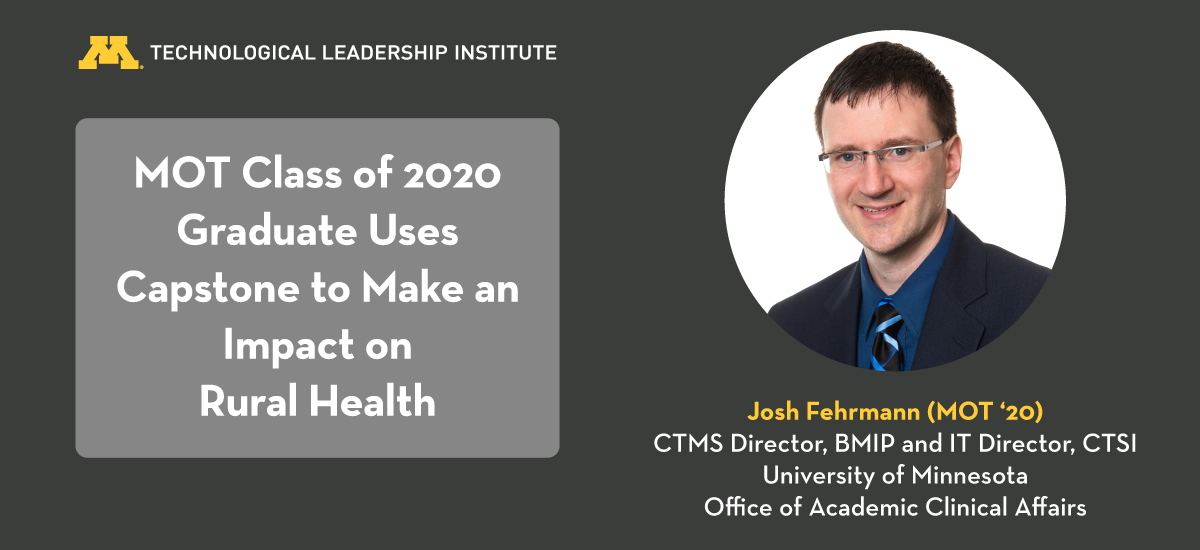MOT 2020 Graduate Uses Capstone to Make an Impact on Rural Health

Peter Drucker, the father of management thinking, is quoted as saying, “The relevant question is not simply what shall we do tomorrow, but rather what shall we do today in order to get ready for tomorrow.”
Inspired by that statement, Josh Fehrmann, a 2020 graduate of the M.S. in Management of Technology (MOT) program, saw opportunities to apply it in the space of rural health. Josh, who is also an employee at the University of Minnesota, worked as an IT director and clinical trial management system (CTMS) director during his time in the program. Thus, when it came to the MOT capstone, a project in which students must apply skills they learned throughout the program to solve real-world problems, leadership within his department encouraged him to focus on making an impact on the future of rural health.
Josh did just that. The result was the creation and publication of a new product, “Rural Health: Evaluation and Selection of Technology (RHEST) Framework.”
In meeting with several researchers and staff, Josh discovered there was no standard method used to select technology for research projects in the rural health space. Given the rapid increase in the development and release of technology, the need for standard tools and methods will logically grow. The RHEST Framework was created as a standard guide for researchers to use to aid in technology selection during the development of a new rural health project. Ideation, analysis and decision stages are included. MOT tools are introduced in each stage, with links to additional information. The guide also contains a resource catalog for quick information look-up to find rural health data sources, funding opportunities, and expert connections.
“The relevant question is not simply what shall we do tomorrow, but rather what shall we do today in order to get ready for tomorrow.”
The RHEST Framework was co-branded by the Clinical and Translational Science Institute (CTSI) and the Office of Academic Clinical Affairs (OACA), at the University of Minnesota. In April 2020, the framework was published on the OACA Research website as a freely available guide to researchers and rural health experts. It is currently available at z.umn.edu/RHEST.
“It was amazing interacting with world-class researchers, adapting advanced technology forecasting tools, some of which are used by NASA, and creating a new product to impact rural health,” Josh said as he reflected back on the capstone experience. Based on feedback from his capstone project, Josh plans to expand the framework beyond the “research” focus to have a more direct impact on rural healthcare providers.
The professional growth Josh obtained throughout the project and MOT coursework helped earn him a promotion to IT director for the Clinical and Translational Science Institute (CTSI) while continuing to work as the director of the clinical trial management system (CTMS).
To learn more about how an M.S. in Management of Technology (MOT) degree from the Technological Leadership Institute can benefit your career, attend an upcoming information session or contact our admissions department.